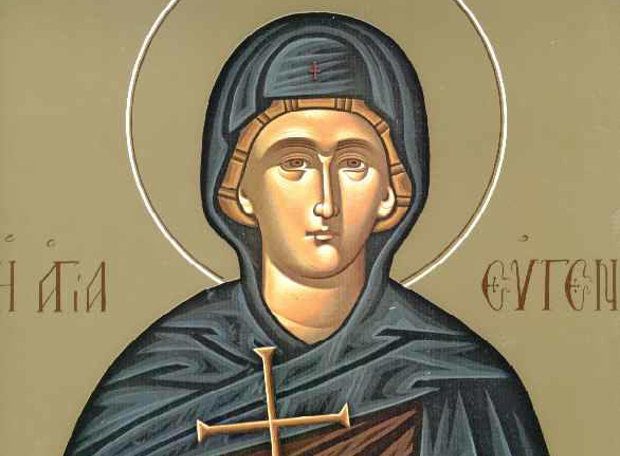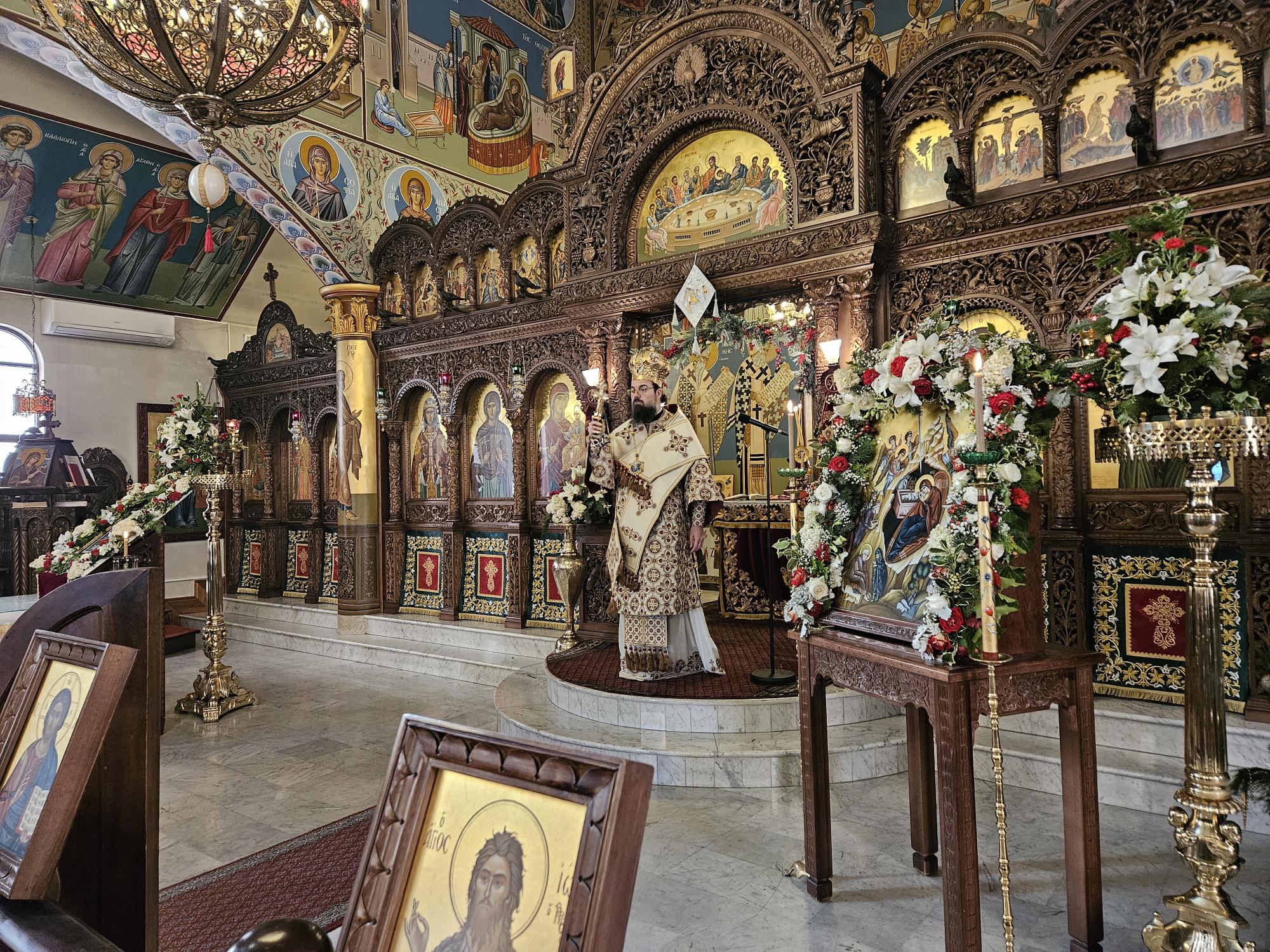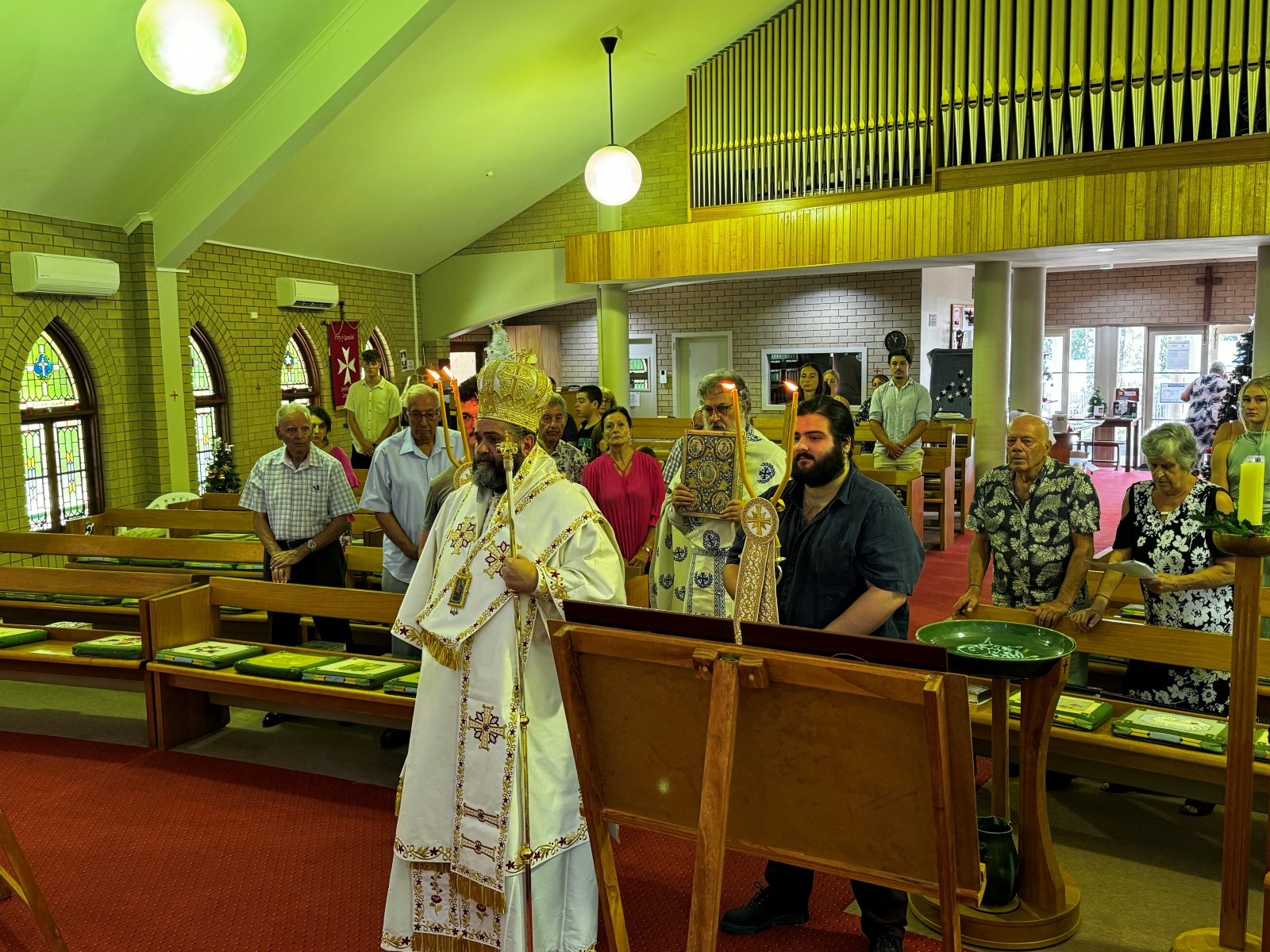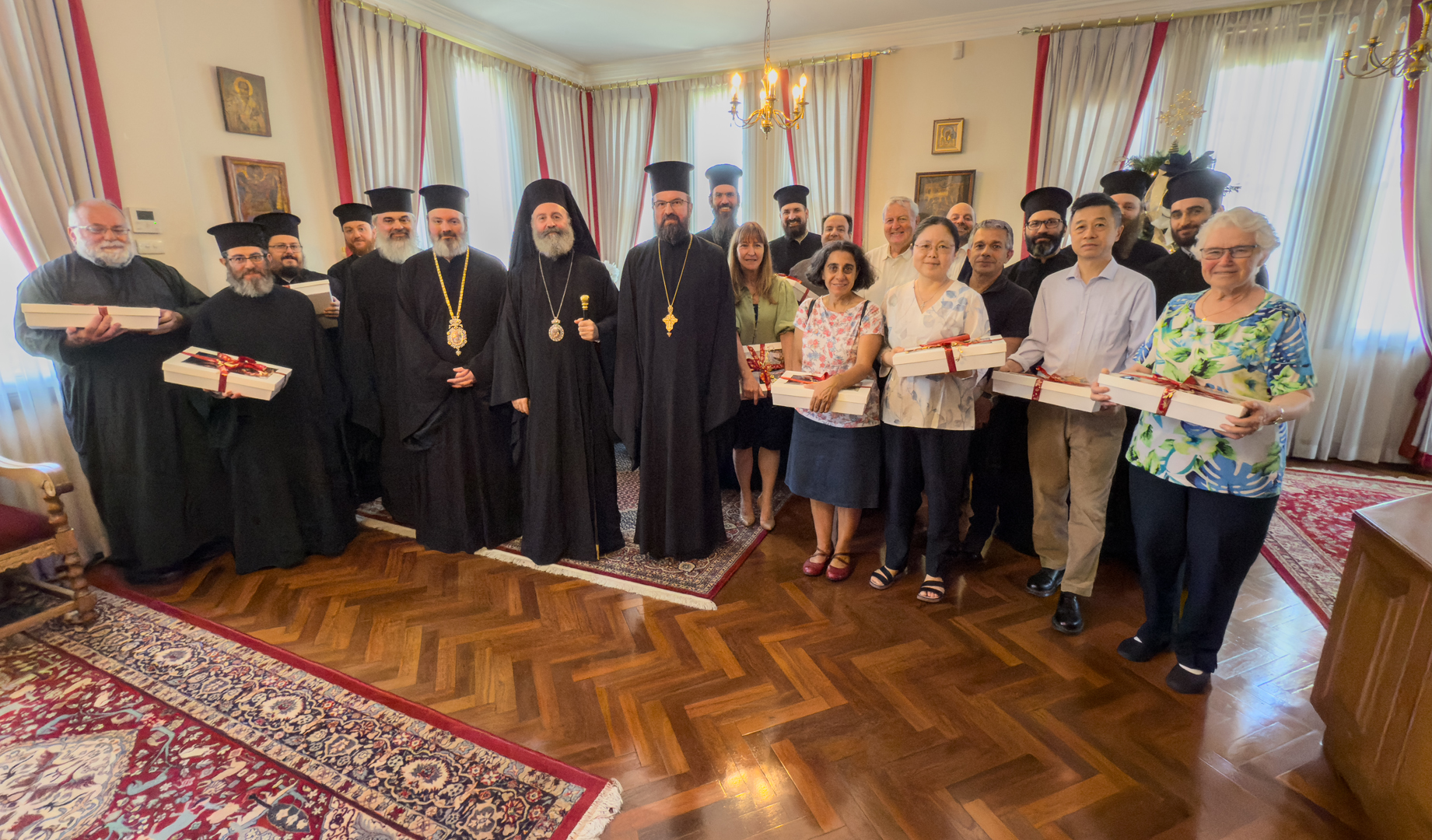Eugenia the Righteous Nun-martyr of Rome and those with her (24 December)


The Holy Martyr Eugenia, was a Roman by birth. She lived at Alexandria, where her father Philip was sent by the emperor Commodus (180-192) to be Prefect of Egypt. Eugenia received a fine upbringing and was noted for her beauty and good disposition. Many illustrious youths sought her hand, but she did not wish to marry anyone, for she was determined to preserve her virginity.
Providentially, she became acquainted with the Epistles of the Apostle Paul. She yearned with all her soul to become a Christian, but kept this a secret from her parents. At that time, Christians were banished from Alexandria by the command of the emperor. Wishing to learn more about Christian teachings, she asked permission to visit one of the family estates outside the city, supposedly to enjoy the countryside. She left in the company of her two servants Protus and Hyacinthus, dressed in men’s clothes. She and her companions were baptized at a certain monastery by Bishop Elias (July 14), who learned about her in a vision. He blessed her to pursue asceticism at the monastery disguised as the monk Eugene.
By her ascetic labors, Saint Eugenia acquired the gift of healing. Once, a rich young woman named Melanthia turned to her for help. Seeing “Eugene,” this woman burned with an impure passion, and when she was spurned, she falsely accused the saint of attempted rape. Saint Eugenia came to trial before the Prefect of Egypt (her father), and she was forced to reveal her secret. Her parents and brothers rejoiced to find the one for whom they had long grieved.
After a while they all accepted holy Baptism. But Philip, after being denounced by pagans, was dismissed from his post. The Alexandrian Christians chose him as their bishop. The new Prefect, fearing the wrath of the people, did not dare to execute Philip openly, but sent assassins to kill him. They inflicted wounds upon Saint Philip while he was praying, from which he died three days later.
Saint Claudia went to Rome with her sons, daughter, and her servants. There Saint Eugenia continued with monastic life, and brought many young women to Christ. Claudia built a wanderers’ hostel and aided the poor. After several peaceful years, the emperor Galienus (260-268) intensified the persecution against Christians, and many of them found refuge with Saints Claudia and Eugenia.
Basilla, an orphaned Roman girl of imperial lineage, heard about the Christians and Saint Eugenia. She sent a trusted servant to the saint asking her to write her a letter explaining Christian teachings. Saint Eugenia sent her friends and co-ascetics, Protus and Hyacinthus, who enlightened Basilla, and she accepted holy Baptism.
Basilla’s servant then told her fiancé Pompey that his betrothed had become a Christian. Pompey then complained to the emperor against the Christians for preaching celibacy and denouncing idolatry. Basilla refused to enter into marriage with Pompey, and so they killed her with a sword.
They dragged Saints Protus and Hyacinthus into a temple to make them sacrifice to the idols, but just as they entered, the idol fell down and was shattered. The holy Martyrs Protus and Hyacinthus were beheaded. They also brought Saint Eugenia to the temple of Diana by force, but she had not even entered it, when the pagan temple collapsed with its idol.


They threw the holy martyr into the Tiber with a stone about her neck, but the stone became untied and she remained unharmed. She also remained unscathed in the fire. Then they cast her into a pit, where she remained for ten days. During this time the Savior Himself appeared to her and said that she would enter into the heavenly Kingdom on the day He was born. When this radiant Feast came, the executioner put her to death with a sword. After her death, Saint Eugenia appeared to her mother to tell her beforehand the day of her own death.
This Martyr was the daughter of most distinguished and noble parents named Philip and Claudia. Philip, a Prefect of Rome, moved to Alexandria with his family. In Alexandria, Eugenia had the occasion to learn the Christian Faith, in particular when she encountered the Epistles of Saint Paul, the reading of which filled her with compunction and showed her clearly the vanity of the world. Secretly taking two of her servants, Protas and Hyacinth, she departed from Alexandria by night. Disguised as a man, she called herself Eugene while pretending to be a eunuch, and departed with her servants and took up the monastic life in a monastery of men. Her parents mourned for her, but could not find her.
After Saint Eugenia had laboured for some time in the monastic life, a certain woman named Melanthia, thinking Eugenia to be a monk, conceived lust and constrained Eugenia to comply with her desire; when Eugenia refused, Melanthia slandered Eugenia to the Prefect as having done insult to her honour. Eugenia was brought before the Prefect, her own father Philip, and revealed to him both that she was innocent of the accusations, and that she was his own daughter. Through this, Philip became a Christian; he was afterwards beheaded at Alexandria. Eugenia was taken back to Rome with Protas and Hyacinth. All three of them ended their life in martyrdom in the years of Commodus, who reigned from 180 to 192.
Eugenia was the daughter of Philip the Eparch of all Egypt and was born in Rome. At that time the Christians had been driven out of Alexandria and lived outside the city. The virgin Eugenia visited the Christians and accepted their Faith with her whole heart. Fleeing from her parents with two of her faithful eunuchs, she was baptized by Bishop Elias. Disguised in men’s clothing, she entered a men’s monastery where she received the monastic habit. So much did she cleanse her heart by voluntary asceticism that she received from God the grace of healing the sick. Thus, she healed a wealthy woman, Melanthia.
After this, however, Melanthia wanted to lure Eugenia into bodily sin, not suspecting that Eugenia was a woman. Since she was adamantly rejected by Eugenia, out of revenge this evil woman went to the eparch and slandered Eugenia in the same manner as Potiphar’s wife had once slandered the chaste Joseph. The eparch ordered that all the monks be bound and cast into prison together with Eugenia. But when St. Eugenia was brought before the tribunal, she revealed herself to her father as his daughter. The overjoyed Philip was then baptized with his entire household, and he was chosen as Bishop of Alexandria. Hearing of this, the Roman emperor sent a wicked commander, Terentius, who came to Alexandria and secretly had Philip killed. St. Eugenia moved to Rome with her mother and brothers.
In Rome she fearlessly and zealously converted pagans, especially maidens, to the true Faith, and thus she converted a beautiful maiden Basilla to the Faith. Shortly afterward, Basilla was beheaded for Christ as Eugenia had foretold to her. Then both eunuchs, Protus and Hyacinth, were beheaded. Finally, a martyr’s end came to St. Eugenia, whose presence had caused the collapse and destruction of the Temple of Diana. The torturers threw her first into water and then into fire, but God saved her. The Lord Jesus Himself appeared to her in prison and told her that she would suffer on the day of His Nativity. And so it was. She was beheaded by the sword on December 25, 262 A.D., in Rome. After her death, St. Eugenia appeared in great glory to her mother and comforted her.
Apolytikion of Martyr Eugenia and those with her
Third Tone
Being mystically moved by the Spirit, thou didst sing God’s praise, thereby receiving the clear light of divine knowledge in thy heart; and shining bright as the sun with a righteous life, thou overcamest the devil in martyrdom. O Eugenia, thou most glorious Martyr of the Lord, entreat Christ God to grant great mercy unto us.
Kontakion of Martyr Eugenia and those with her
Fourth Tone
Fleeing from the fleeting world’s temporal glory, thou didst greatly long for Christ, and didst preserve wholly unhurt the high nobility of thy soul, O godly Martyr, all-lauded Eugenia.
Source: oca.org / goarch.org / westserbdio.org




